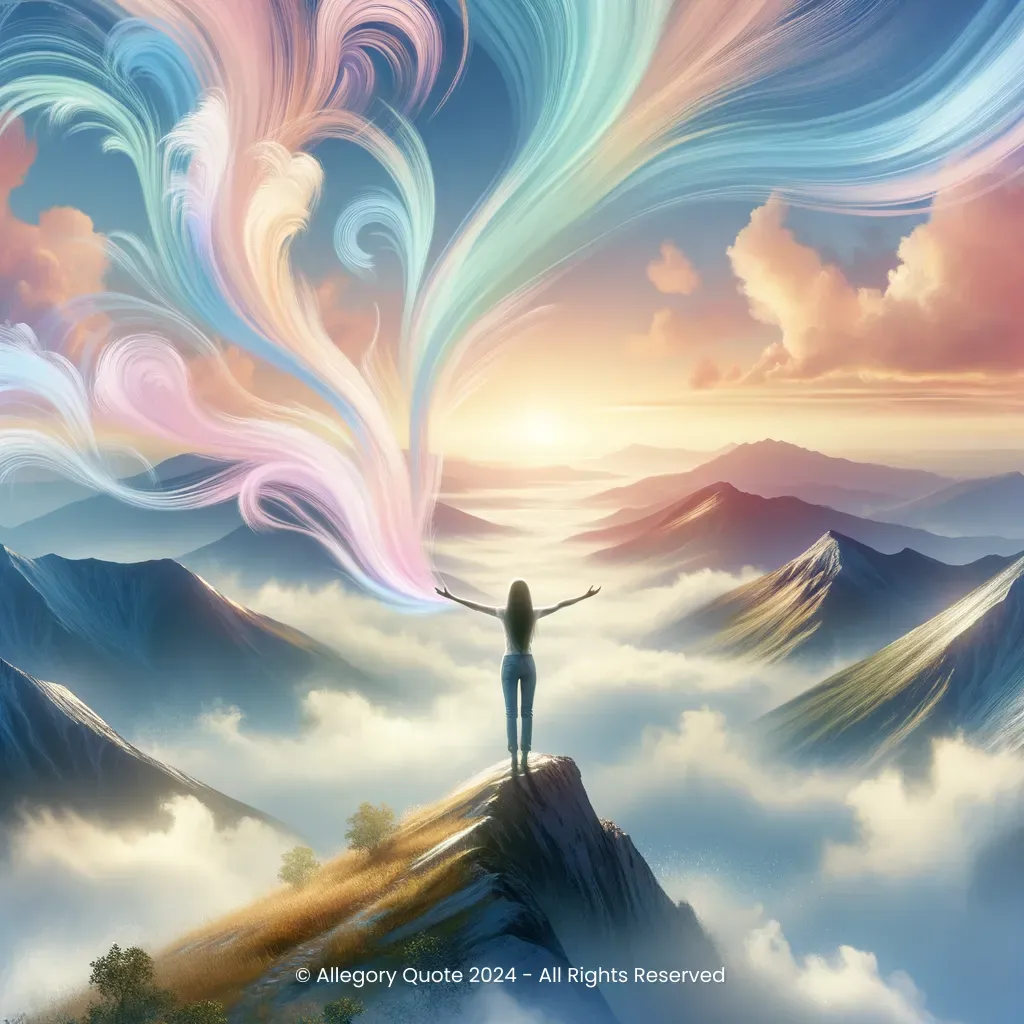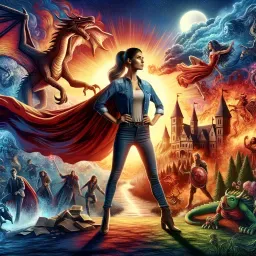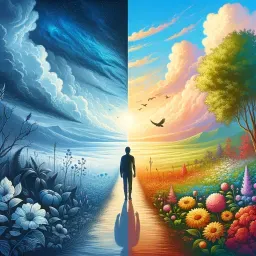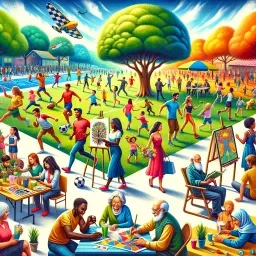Let it go

0
0
0
0
- Meaning
- Philosophically, this phrase encourages the act of releasing emotional baggage, stress, or negativity that no longer serves us. Psychologically, it suggests self-empowerment and personal freedom, encouraging individuals to move on from past traumas. Historically, it represents a cultural shift towards self-acceptance and resilience, prompting discussions about mental health and emotional well-being.
- Allegory
- The allegorical image captures a figure embodying freedom and self-acceptance at the summit of a mountain, symbolizing achievement and growth. The flowing clouds represent burdens being released into the atmosphere, while the range of colors signifies the vast emotional spectrum one can experience when they choose to ‘let it go’. This imagery promotes the idea of embracing life transitional moments with courage and positivity.
- Applicability
- One can apply the lesson of "Let it go" in daily life by consciously choosing to release grudges, fears, or negative self-perceptions. Practice mindfulness techniques to focus on the present and cultivate an attitude of acceptance and forgiveness.
- Impact
- The impact of this phrase has been substantial, becoming an anthem for self-acceptance and empowerment. It has inspired movements focused on emotional well-being, and the song has been widely quoted and referenced in various contexts, including discussions about mental health.
- Historical Context
- The song "Let It Go" debuted in 2013 as part of Disney's Frozen, but the concept of letting go has been discussed in various forms throughout history. It resonates with psychological and philosophical teachings that promote personal growth and healing.
- Criticisms
- Some criticisms arise regarding the phrase's interpretation as it may imply neglecting responsibilities or relationships. Critics argue that while letting go can be beneficial, a more nuanced approach is necessary for certain situations. Arguments against its meaning could focus on the importance of engagement with emotions and not simply suppressing them.
- Variations
- Variations exist in multiple cultures, such as the Taoist concept of 'wei wu wei' which translates roughly to 'action through inaction', suggesting a similar idea of letting things flow naturally without force. Different interpretations may highlight cultural attitudes towards acceptance and resilience.
-

I am Groot.
-

You’re braver than you believe, stronger than you seem, and smarter than you think.
-

I’m a damsel, I’m in distress, I can handle this.
-

It’s not the destination, it’s the journey.
-

I never look back, darling. It distracts from the now.
-

Second star to the right and straight on ‘til morning.
-

Life’s not a spectator sport.
-

A spoonful of sugar helps the medicine go down.
-

You control your destiny — you don’t need magic to do it.
-

There’s no place like home.
-

You don’t have time to be timid. You must be bold and daring!
-

Some people are worth melting for.
No Comments